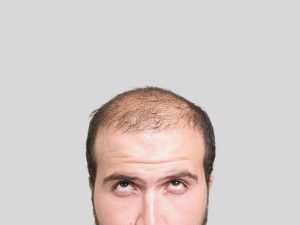Embarking on the journey of hair transplant surgery can indeed be a life-changing decision. It’s a step that goes beyond merely enhancing your appearance; it’s about reclaiming a part of yourself that may have been lost over time, thereby restoring your confidence and how you present yourself to the world. This procedure can significantly impact your self-image and social interactions, which is why it’s crucial to approach it with a thoughtful mindset. Before you take the plunge, it’s essential to delve into critical questions that will help clarify your decision, including the hair transplant price. You need to consider the potential for long-term satisfaction and weigh the emotional and financial investment, including the hair transplant price, against the expected outcomes. Understanding the full scope of the procedure, the recovery process, and the realistic results will help align your needs and expectations with what can be achieved. It’s not a decision to be taken lightly, and ensuring you have all the necessary information, including a clear understanding of the costs involved, is key to making a choice that you will be content with for years to come.
Will This Surgery Solve My Problem?
Understanding the root cause of your hair loss is paramount. Hair transplants are particularly effective for conditions like male pattern baldness, which typically presents as a receding hairline or thinning at the crown. However, they may not address hair loss resulting from medical conditions such as alopecia areata or from the side effects of certain medications. It’s also important to consider that hair loss can be a symptom of an underlying health issue, so it might be necessary to address the primary health concern first. Before considering a transplant, it’s crucial to consult with a specialist who can assess your individual case. They can perform a thorough evaluation, possibly including blood tests or scalp analysis, to determine if a hair transplant is the most suitable solution for your type of hair loss. Additionally, they can advise on the likelihood of future hair loss and whether you might need additional treatments to maintain the results of the surgery. This comprehensive approach ensures that you’re not just treating the symptom, but also addressing the cause, leading to a more satisfying and lasting outcome.
Can I Enhance the Results of the Operation?
The success of a hair transplant doesn’t solely rely on the surgery itself; it’s also heavily dependent on the post-operative care and how you manage your scalp and hair thereafter. Diligently following your surgeon’s guidelines on medication, diet, and hair care routines is essential for promoting optimal healing and hair growth. Nutritional supplements and a balanced diet rich in proteins and vitamins can also support hair health. Moreover, some patients may benefit from supplementary treatments such as PRP (Platelet-Rich Plasma) therapy, which can stimulate the healing and growth of hair follicles by using the patient’s own growth factors. Additionally, avoiding harsh chemical treatments and protecting the scalp from sun exposure are key factors that can significantly contribute to the longevity and quality of the transplant results.
How to Choose the Right Clinic?
Choosing the right clinic for your hair transplant is a decision that should be based on several critical factors, not just cost. It’s vital to seek out a clinic that is helmed by a reputable surgeon with a proven track record of successful transplants. Look for extensive before-and-after photo galleries of previous patients to assess the quality of the results. Reading reviews and testimonials can provide insight into the experiences of past patients, which can be indicative of the service you’ll receive. Additionally, it’s important to verify the clinic’s accreditation to ensure that they meet the industry standards for care and safety. The surgeon’s expertise, the team’s experience, and the technology used in the clinic are crucial aspects that can significantly influence the outcome of your surgery. Advanced technology can lead to more precise and natural-looking results, and a skilled team can provide comprehensive care. Furthermore, consider the clinic’s approach to patient education and their willingness to provide thorough consultations and answer all your questions. A clinic that invests time in helping you understand the procedure, the recovery process, and setting realistic expectations is likely to be one that cares deeply about patient satisfaction and outcomes.
Which Hair Graft Method Is Right for Me? Recovery Time and Precautions
There are various hair grafting methods, such as FUT (Follicular Unit Transplantation) and FUE (Follicular Unit Extraction). Each has its advantages and suitability depending on your condition, scalp laxity, and desired outcome. A consultation with a hair restoration expert can help determine the best method for you.
There are various hair grafting methods available, such as FUT (Follicular Unit Transplantation) and FUE (Follicular Unit Extraction), each with its specific advantages. FUT is often preferred for its efficiency in covering larger areas, as it involves removing a strip of hair-bearing scalp from which to harvest follicles. On the other hand, FUE is sought after for its less invasive nature, leaving no linear scars and allowing for a quicker recovery time. Your individual condition, the elasticity of your scalp, and the goals you wish to achieve with the transplant are all critical factors in deciding the most appropriate method. A detailed consultation with a hair restoration expert is indispensable, as they can evaluate your hair loss pattern, discuss the potential for future hair loss, and recommend the best technique based on the quality and density of your donor hair. They can also explain the nuances of each procedure, including the healing process, the look and feel of the final results, and the long-term care required to maintain your new hair. This personalized approach ensures that the chosen method aligns with your lifestyle and aesthetic desires, leading to greater satisfaction with your hair transplant outcome.
Is the Hair Transplant Permanent?
Hair transplants are generally considered permanent solutions, as the transplanted hair is typically resistant to dihydrotestosterone (DHT), the hormone responsible for androgenetic alopecia. However, setting realistic expectations is crucial. While the transplanted hair is permanent, your non-transplanted hair can continue to thin and recede over time due to the natural aging process. This can affect the overall hair density and may necessitate additional procedures or treatments to maintain a uniform appearance. It’s also worth noting that lifestyle factors such as diet, stress, and health can influence the longevity and health of your transplanted hair. Therefore, a comprehensive approach to hair care post-transplant is recommended to support the durability of the results. Regular follow-ups with your hair restoration specialist can help manage any future changes in your hair’s appearance, ensuring that you continue to enjoy a fuller head of hair for as long as possible.
A hair transplant can be a permanent solution to hair loss, but it’s not a decision to be taken lightly. By addressing these key questions, you can approach your hair transplant with confidence, knowing you’ve made an informed decision. Remember, the first step is always a thorough consultation with a hair restoration specialist.



